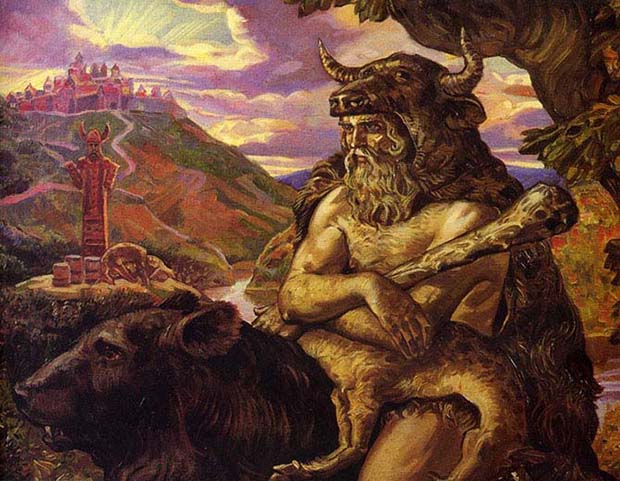A Guide to Slavic Mythology
Briefly about the infamous Slavic mythology
Last Updated
02/09/23
Chapters
16
Reads
532
Weles
Chapter 7
Weles - also known as Wołos. One of the most important Slavic gods, mentioned right after Perun and placed in opposition to him. Its origin, meaning and interpretation pose many difficulties to researchers. His name may be related to with the Greek Champs Elysées or the Nordic Valhalla. Such a connection seems very probable considering the fact that one of the main "tasks" of Weles is the power over the land called Nawia, which is the Slavic afterlife - the aforementioned opposition to Perun, who is the god of heaven and thunder, is visible here. Aleksander Gieysztor compares this couple to the Indian divine opposition Mitra-Varuna. Another feature confirming Weles' power over the afterlife is his ability to transform into a Viper, who was the guardian of the entrance to the underground realm. Some similarities can be found between Veles and the Baltic god of the dead Velinas (Vels), the situation is similar with the Slavic Perun and the Baltic Perkunas. Also, the sacrifice made to Weles, which was a black, three-year-old bull, is characteristic of deities associated with the underworld. Reigning over the afterlife is not Weles' only task. Sometimes he is called the "bovine god" (skotij bog), because he is considered to be the lord and the supreme guardian of cattle, which in Slavic culture was a reflection and measure of wealth and prosperity (which again indicates belonging to the category of chthonic deities, as they are also related to with the fertility of the earth. He has the power to protect the flock against wild animals, especially wolves, because this god is associated with the animal side of nature (as opposed to Perun, who is on the human side). Due to his influence on prosperity, he is sometimes considered the god of merchants. There are several other aspects attributed to Weles. He is considered the god of law and oaths (all people swore on his name, only warriors swore on Perun), arts and crafts, as well as magic and fortune-telling, which is inferred from the existence of the so-called. volkhs, i.e. magicians and soothsayers, also known as Veles sorcerers. Weles is no stranger to contact with poetry and singers, as evidenced by the bard Bojan, endowed with inspiration by the same god, and called Weles' grandson in "The Word about Igor's Expedition".




